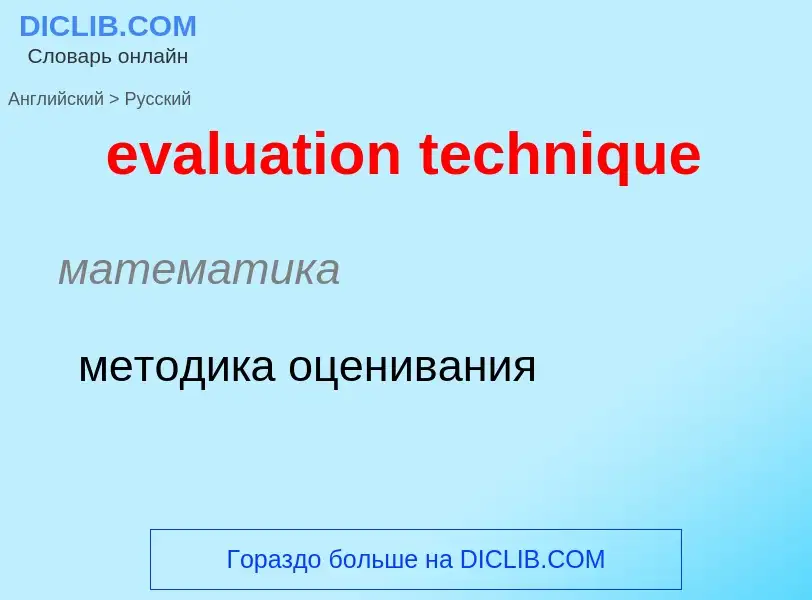Traduzione e analisi delle parole tramite l'intelligenza artificiale ChatGPT
In questa pagina puoi ottenere un'analisi dettagliata di una parola o frase, prodotta utilizzando la migliore tecnologia di intelligenza artificiale fino ad oggi:
- come viene usata la parola
- frequenza di utilizzo
- è usato più spesso nel discorso orale o scritto
- opzioni di traduzione delle parole
- esempi di utilizzo (varie frasi con traduzione)
- etimologia
evaluation technique - traduzione in russo
математика
методика оценивания
Definizione
Wikipedia
Neuropsychological assessment was traditionally carried out to assess the extent of impairment to a particular skill and to attempt to determine the area of the brain which may have been damaged following brain injury or neurological illness. With the advent of neuroimaging techniques, location of space-occupying lesions can now be more accurately determined through this method, so the focus has now moved on to the assessment of cognition and behaviour, including examining the effects of any brain injury or neuropathological process that a person may have experienced.
A core part of neuropsychological assessment is the administration of neuropsychological tests for the formal assessment of cognitive function, though neuropsychological testing is more than the administration and scoring of tests and screening tools. It is essential that neuropsychological assessment also include an evaluation of the person's mental status. This is especially true in assessment of Alzheimer's disease and other forms of dementia. Aspects of cognitive functioning that are assessed typically include orientation, new-learning/memory, intelligence, language, visuoperception, and executive function. However, clinical neuropsychological assessment is more than this and also focuses on a person's psychological, personal, interpersonal and wider contextual circumstances.
Assessment may be carried out for a variety of reasons, such as:
- Clinical evaluation, to understand the pattern of cognitive strengths as well as any difficulties a person may have, and to aid decision making for use in a medical or rehabilitation environment.
- Scientific investigation, to examine a hypothesis about the structure and function of cognition to be tested, or to provide information that allows experimental testing to be seen in context of a wider cognitive profile.
- Medico-legal assessment, to be used in a court of law as evidence in a legal claim or criminal investigation.
Miller outlined three broad goals of neuropsychological assessment. Firstly, diagnosis, to determine the nature of the underlying problem. Secondly, to understand the nature of any brain injury or resulting cognitive problem (see neurocognitive deficit) and its impact on the individual, as a means of devising a rehabilitation programme or offering advice as to an individual's ability to carry out certain tasks (for example, fitness to drive, or returning to work). And lastly, assessments may be undertaken to measure change in functioning over time, such as to determine the consequences of a surgical procedure or the impact of a rehabilitation programme over time.

